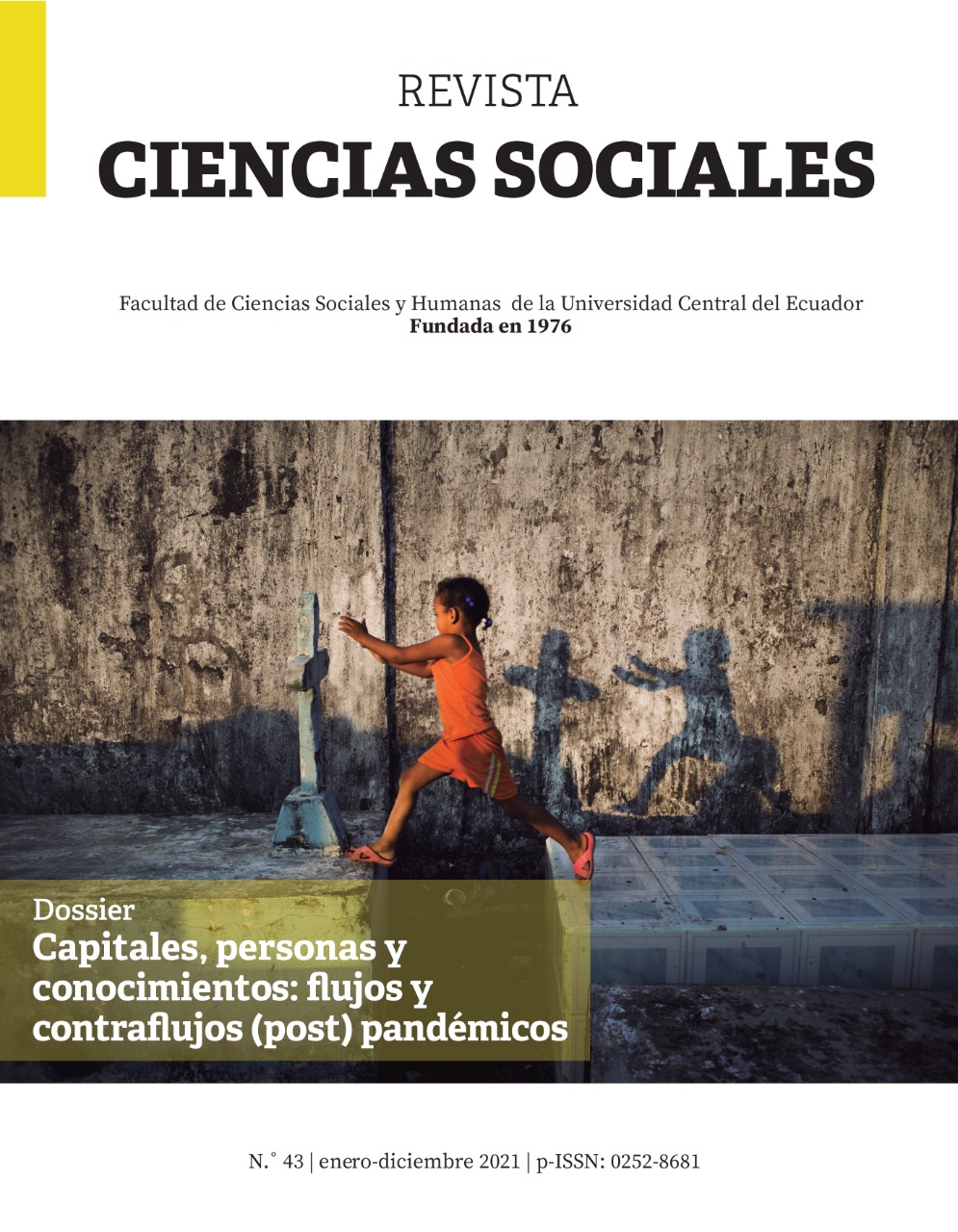Nobody dies on the eve:
knowledge and feeling-thinking in times of confinement.
DOI:
https://doi.org/10.29166/csociales.v1i43.3351Keywords:
pedagogies of existence, non-ethics of death, necropoliticsAbstract
The present work was woven amidst the COVID 19 pandemic and is part of the walk that was possible for me outside the confinement provoked by the mobility restrictions imposed by the virus. The high lethality of the virus and its reflection on the invisibilized populations, have potentiated the historical impacts of pandemic racism which is institutionalized in the Ecuadorian state. For several centuries the state has been absent (and perhaps remains absent), in many corners of the country. This is particularly true in the Valle del Chota, located in the ancestral Afro-Ecuadorian territory in the provinces of Imbabura and Carchi. Through a brief ethnographic fieldwork, I gathered some of the experiences that, along with their philosophical, cosmogonic, and woven knowledge in Afro-Ecuadorian communities, have sustained life in the face of continuous and historical neglect. Through testimonies I propose what I call pedagogies of existence. These are pedagogies based on community practices and values that are lodged in people’s memory which have been instruments to face non-ethics of death or state-embraced necropolitics. The relationship with death has gained other shades within the communities, to which the 'prodigal children' have returned in a reverse flow, from the cities to the rural areas, responding to a need for rehumanization and return-to-being in pandemic times.
Keywords: pedagogies of existence, non-ethics of death, necropolitics
Downloads
Downloads
Published
How to Cite
Issue
Section
License
Copyright (c) 2021 Edizon Castro

This work is licensed under a Creative Commons Attribution-NonCommercial-NoDerivatives 4.0 International License.
Política de acceso abierto
La revista Ciencias Sociales adhiere al modelo Acceso Abierto en el que los contenidos de las publicaciones científicas se encuentran disponibles a texto completo libre y gratuito en Internet, sin embargos temporales, y cuyos costos de producción editorial no son transferidos a los/las autores/as.
En ese sentido, no existe costo alguno para los/as autores/as en el envío o durante el proceso editorial, defendiendo el derecho a la información con equidad e iguales oportunidades de acceso.
Licencia y derechos de autor/a
Los autores conservan todos los derechos de publicación del artículo y conceden a la Revista Ciencias Sociales una licencia no exclusiva, intrasferible y sin regalías por duración ilimitada para su reproducción, distribución y comunicación pública a nivel mundial bajo una Licencia Creative Commons Atribución 4.0 Internacional (CC BY NC 4.0)


